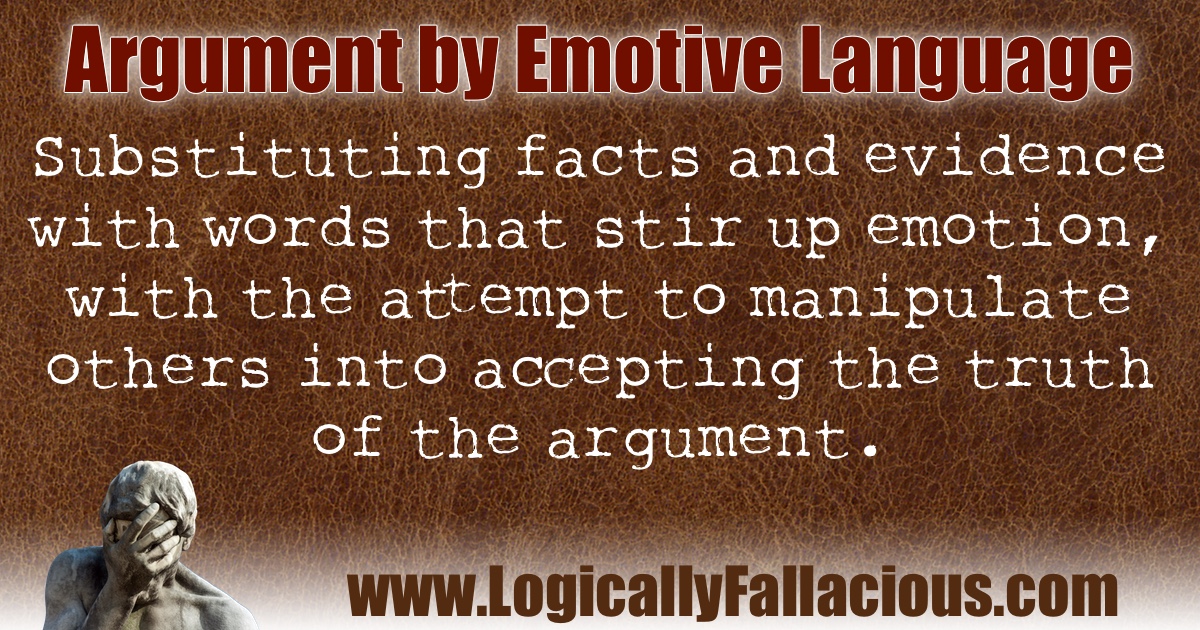(also known as: loaded words, loaded language, euphemisms)
Description: Substituting facts and evidence with words that stir up emotion, with the attempt to manipulate others into accepting the truth of the argument.
Logical Form:
Person A claims that X is true.
Person A uses very powerful and emotive language in the claim.
Therefore, X is true.
Example #1:
By rejecting God, you are rejecting goodness, kindness, and love itself.
Explanation: Instead of just “not believing” in God, we are “rejecting” God, which is a much stronger term—especially when God is associated with “goodness.”
Example #2:
The Bible is filled with stories of God's magic.
Explanation: Instead of using the more accepted term “miracles,” the word “magic” is used that connotes powers associated with fantasy and make-believe in an attempt to make the stories in the Bible seem foolish.
Example #3:
I don’t see what’s wrong with engaging the services of a professional escort.
Explanation: That’s just a nice way of saying, “soliciting a hooker.” No matter what you call it unless you live in certain parts of Nevada (or other parts of the world), it is still legally wrong (not necessarily morally wrong).
Exception: Language is powerful and should be used to draw in emotions, but never at the expense of valid reasoning and evidence.
Tip: Euphemisms, when used correctly, reflect good social intelligence. When in a business meeting, say, “Pardon me for a moment, I have to use the restroom,” rather than “Pardon me for a moment, I have to move my bowels.”

References:
Walton, D. (2006). Fundamentals of Critical Argumentation. Cambridge University Press.